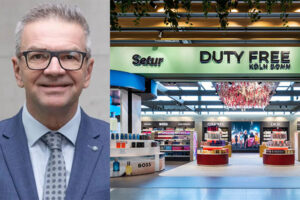By Rabia Shihab
What we are going through these days is unprecedented. Unprecedented in its worldwide collective scale turbulence to the fundamental texture of many long-lasting conceptual conventions which will inevitably have a noticeable impact to an extent that is unknown to anyone yet. The corona pandemic reveals and emphasizes, among others, the very simple basic fact which is crucial to healthy business survival illustrated by the dependency of all different business parties on each other’s survival. No one can or will survive this alone, all parties within the macro business chain need the other party to survive. Therefore, not only a joint collaboration is necessary, but it is also imperative to overcome the putative constraints imposed by the corona pandemic.
It is not the first storm to hit the retail sector and most likely will not be the last one. Over the last years the global economy has experienced repeated fluctuations and crises, both severe and less severe ones, which without any doubt shaped and sharpened the way we deal with crises when they occur despite the uncertain environment. Some would be able to adopt faster to changes (and there will be changes) while others would strive to survive. Decision-makers will have to take actions, sitting on the fence instead of dictating a constructive action plan would be rather risky.
Let’s be clear, despite the negative short term as well as the long term economic impact of this crisis on the retail sector demonstrated by complete or partial closure of shopping centers and retail parks, loss of income for the lessors and the lessees, suspension of all current and future development and expansion plans, decrease in footfall, increase of online sales, increase in the unemployment, downsizing of stores, exiting the market and the list goes on… Despite all of that, trade and shopping will reopen and remain predominate. It goes without saying that quick reaction to the events projects a feeling of control and contributes more maneuvering space to adjust and recalculate routes. The lessors and lessees as well as lenders should find the time during this crisis to communicate, be pragmatic enough to wrap up together a quick understanding in a fair approach based on mutual trust to assist each other during this wave to insure a realistic and manageable reopening where both lessors and lessees can gradually go back to normal. Communication should mainly focus on two aspects: financial and reopening strategy.
It is crucial to understand the needs, the weakness, and the strengths of each lessee and provide support where needed during the crisis and also following the reopening. It is a top priority for the lessors to insure the survival and later well performance of the lessees. On the other hand, it is not less important to understand the position of the lessors who have significant financial obligations to uphold and put significant efforts and resources to keep business in its best shape. Soon, hopefully, this storm will be history. In in the meanwhile, what we all must do is to foresee the “day after” and focus on the upcoming reopening to rebuild the industry and provide the most up to date shopping experience to our customers.





